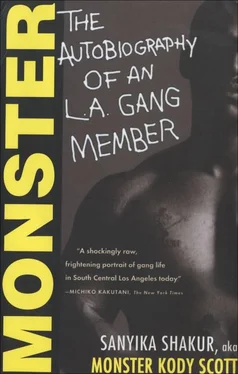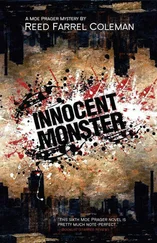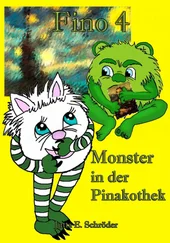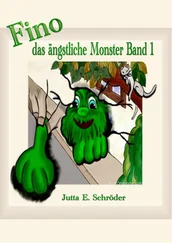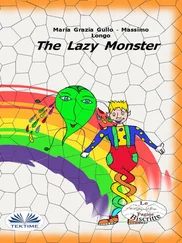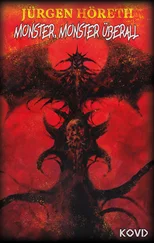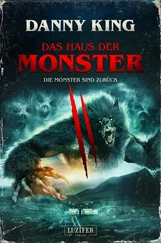There was De with his hand extended. I reached, grabbed, and shook it with vigor. From that point on the medium of exchange in my life has been gunfire.
Trying hard not to come across too thuggish in front of China’s grandparents, I sat stiff-backed, pretending to be interested in what Ben, China’s ostensibly aristocratic grandfather, who drove an RTD bus, was saying.
“You youngsters don’t have any incentive, no drive. You are always looking for someone to put something in your hands.”
China, sighing loudly, nudged my leg and shot me a stare of “I’ve heard this a million times.” She was eager to get back outside. We had only come indoors to retrieve China’s coat but had gotten caught in one of Dot—China’s liberal grandmother—and Ben’s discussions on youth. Now night had fallen.
China’s well-kept house sat smack in the middle of the block on Eightieth Street, our newest possession in our latest recruitment drive. I would imagine that our aggressive conquering of territory in those days, and still today, resembled Hitler’s sweep through Europe.
The apartment complex on the left end of the block off of Normandie Avenue became our base for this block. We have since referred to it as the “blue apartments.” We had “lost” the “white apartments” on Sixty-fifth Street to Bloods while I was a prisoner in youth camp. The battle, I’m told, was fierce, but not worth the price. Although we suffered no fatalities, our wounded and MIA list grew steadily. Besides this, the Brims, whom the battle was with, had called in reinforcements from the Rollin’ Twenties Bloods. The white apartments thus passed to the Reds and new ground was sought.
Eightieth Street was just one street out of many that fell under our jurisdiction. The mechanics involved in taking a street, or territory, is not unlike any attempt, I would assume, on behalf of early Euro-American settlers. Send in a scout, have him meet the “natives,” test their hostility level, military capabilities, needs, likes, and dislikes. Once a military presence is established, in come the “citizens”—in this case, gang members. Those who are not persuaded by our lofty presence will be persuaded by our military might. All who are of fighting age become conscripts. The set expands, and so does our territory. Sometimes there is resistance, but most of the time our efforts are successful. China’s younger brother was one of our first recruits from Eightieth. Recommended by China and sponsored by me, he became Li’l G.C.
“Listen now, Kody,” Ben continued in a deep baritone, pronouncing every syllable of every word. “You have got to stop pussyfooting around with your life. We are quickly becoming a technological country, and computers are going to overtake manual labor. What that means is—”
A shot rang out, cutting Ben’s monologue short. For an instant I thought he himself had been hit; he was belly down on the floor. Another shot resounded, this time a shotgun blast.
Jumping to my feet I headed to the front door, opened it, and ran out onto the porch. My heart was pumping, but my adrenaline was urging me on. Looking first to the right, toward the blue apartments, and then to the left, in the direction of Halldale, I spotted a burgundy Cutlass creeping down the street, a shotgun barrel in the passenger’s hand barely visible through the open window.
Jumping the Creeping Charlie plants on the porch, which grew in huge flower pots, I darted into the street. Pulling out my chrome .25 automatic, recently put on the set by a new recruit, I began firing at the car. The car sped away. I kept firing at its rear as it turned left on Normandie Avenue.
I turned and bolted toward Halldale to assess the damage of their ride-by. Once I reached that corner I heard Dee Dee, Butchy’s sister, hollering. At first I couldn’t make out just what she was saying in the midst of the escalating confusion. Civilians had come out of their homes, and homeboys were starting to gather in front of China’s house. Then it dawned on me.
“Monster, here they come, they comin’ back…”
Damn, I was out of shells! No sooner had I turned to run and take cover, thinking I’d be shot in the back, then a black-and-white police car hit the corner and all but ran into the shooters’ car. The police pulled their weapons and ordered the occupants out of the car and face down in the street. We all gathered to identify our enemies—not to help the police, but for our own intelligence.
There were three occupants, a .38 service revolver, and a pump shotgun, sawed off at the barrel for a spraying effect and sawed off at the stock for stealth and close combat. One shooter we knew—Bank Robber; the other two were obviously new recruits, probably putting in work for the first time. They were members of the Rollin’ Sixties. My response went virtually unnoticed by the police, though I saw two holes in the passenger door. No one inside was hit. The shooters were taken away amid death threats and shouts of revenge. In the absence of the police, the car was promptly torn up and set ablaze. Ten minutes later the impound came and scooped up the remains.
On my trek by China’s house on my way to the blue apartments I encountered Dot and Ben on their front lawn.
“Kody.” Dot started in on me first. “You don’t be runnin’ toward no gunfire, you run from it. You could have been killed!”
“Yes, ma’am,” I replied, grateful that they hadn’t seen me firing on the car. Apparently Dot had dived for cover as well, joining Ben on the floor. “I just thought that one of my friends had been hurt.”
“Well, goddammit, you are not Superman, boy,” Ben said. “You could not have possibly helped anyone in such a crisis.” He pronounced crisis like Nixon speaking on the energy crisis.
“You’re right, Ben, I lost my head,” I replied and put one foot in front of the other, trying to exit the conversation and get to the blue apartments to mount a retaliation.
“Where you going now?” Dot retorted with genuine concern. “Ain’t nothin’ but police out here.”
“To the apartments to check on my little brother,” I lied and kept on stepping.
At the apartments I was congratulated by the homies for a proper response, but I shook their flattery off. Shit, I wanted to know how, after I had alerted everyone to enemy presence, the shooters were still able to make it off the block and come back around to shoot again? Heads dropped and gestures of dismay abounded. I looked on in disgust, thinking then that I was the only serious one in this.
For the past five years I had gotten up every morning and ironed my gear with thoughts of nothing else but doing propaganda for the set. I did this with all the zeal of a religious fanatic.
Until I was nine years old we had lived on Hillcrest Drive in the Crenshaw district. This is a moderate middle-class neighborhood of block after block of sparse lawns, well-paved streets and shady trees. My mother and stepfather had lived there since 1965. This neighborhood is now Rollin’ Sixties ’hood. Up until 1980 my mother still shopped at Buddah Market on Slauson Avenue, owned and operated by Orientals.
In the summer of 1980 my mother asked me to accompany her to Buddah Market to shop. I refused with vigor, but my resistance was in vain. Mom didn’t overstand the complexity of our conflicts with other gangs. We are trying to kill each other. Up till then she always took my spiel about our seriousness as melodramatic exaggeration.
I went to Buddah Market with her that day—and I weighed two pounds extra. I had a Browning 9 millimeter with fourteen shots. It was an unusually bright afternoon, and I recall feeling light and almost happy, content actually. Riding up Slauson past Crenshaw I remember tensing and cringing as I read line after line of their graffiti on walls and buildings. Amusing myself, I jokingly asked Mom to pull over so I could cross them out. In return I got a “you damn fool” look. Then I noticed Mom’s face cloud over with what I took to be utter helplessness. Ironically, I never gave stopping an inkling of a thought. This was my career, my “calling,” as church folks say when someone does one thing real well.
Читать дальше
